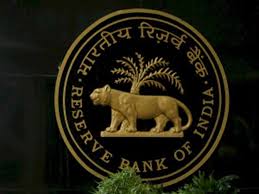 India’s start-ups have a new catchphrase – back to basics. Traditionally, these businesses have focused on fundamentals -invest to grow while ensuring one doesn’t burn money in chasing eyeballs that do not translate into revenue and profit.
India’s start-ups have a new catchphrase – back to basics. Traditionally, these businesses have focused on fundamentals -invest to grow while ensuring one doesn’t burn money in chasing eyeballs that do not translate into revenue and profit.
The year 2015 was an aberration, with soaring valuations and nearly Rs 36,000 crore or $5 billion in venture capital and private equity money pumped into start-ups. Now, with a global reset by investors to tighten their belts and relook at how businesses are run, India has also been hit.
| TREADING CAUTIOUSLY |
- Investors pumped $5 bn in start-ups in 2015
- As global investors tighten belts, Indian start-ups are impacted
- Investors seek to look at business value than valuation of business
- Morgan Stanley writes down investment value in Flipkart by 27 per cent
- Now, investors are focusing on business fundamentals
- Start-ups shed jobs, cut down on high spends and focus on building sustainable business
|
Several entities that followed the burn-cash model have been forced to shed jobs and improve their business models. Among the more known names, Zomato, Housing and TinyOwl have shed jobs. Flipkart, the largest e-commerce company and the most highly valued start-up, saw investor Morgan Stanley mark down the value of its (minority) stake by 27 per cent. While factors such as growing competition and not meeting the growth targets could have influenced this, the message for the rest of the start-up system was clear – pull up your socks.
“One thing which certainly happened was that the valuations of B2C (business to consumer) companies weren’t justified. What you’re seeing is more in terms of right-sizing or to be fairly valued,” said Sanjay Nath, managing partner at Blume Ventures. “I wouldn’t use the term ‘bubble’, as that would signify India’s fundamentals are not strong. That’s definitely not the case.”
The fundamentals of India as a market are very strong, he adds. There’s a huge growth in smartphone sales, the uptake of third-generation (3G) technology data connectivity is growing and 4G services are coming in. Growth in tier-II and tier-III cities is very high, and as these are highly underpenetrated, the opportunities are immense.
“Recession is when good companies are built. I’m not saying there’s one, so these are good times,” says Shashank N D, co-founder and chief executive officer of Practo, a health care technology entity.
To grow fast and outdo the competition, several start-ups in the B2C space, especially the segments of foodtech and hyperlocal, began to offer discounts and cash-backs, despite making a loss on each such transaction. This unsustainable model of business is on the way out. Investors now are pressurizing companies in their portfolio to focus on operational efficiency, improve productivity, keep costs low and move to profitability.
“Suddenly, a view to profitability is coming in and the view of discounting and cash-backs is being rolled away slowly. It’s being done very subtly, which is why nobody is noticing it, but it’s happening,” said Ash Lilani, managing partner and co-founder at Saama Capital. “A lot of good investors are making sure their good companies are financed for the next 18-24 months. But, it’s rationalisation, it’s (about) coming back to earth.”
Start-ups have begun looking at ways to conserve cash, with the slump in funding the market is currently going through. Despite this, there’s a lot of optimism that the market will recover and investors will open their purse strings, though it is presumed the pace of investments would substantially reduce.
“The overall investment in the latter part of 2016 should catch up, as you can’t just not make investments and sit because the money is there. Unnecessary funding or crazy funding which was happening will slow down a bit but good companies will raise much more money this year,” said Shekhar Kirani, managing partner at Accel Partners India.
Rajan Anandan, managing director of Google India and prolific backer of start-ups as an angel investor, says the best is yet to come out of India. “If you think of this evolution as a series of (cricket) test matches, let’s say it’s a five-test series and we’re at the first test in the third day. We have to finish the first test, go to the second, then the third. It’s very early. There are going to be periods of ups and downs; it’s a bump in the road,” was the way he put it.
Source: http://www.business-standard.com/article/companies/indian-start-ups-get-back-to-basics-116030700027_1.htm
 CDPQ, which deals primarily in public and para-public pension and insurance plans, also announced the establishment of its Indian office in New Delhi.
CDPQ, which deals primarily in public and para-public pension and insurance plans, also announced the establishment of its Indian office in New Delhi.




